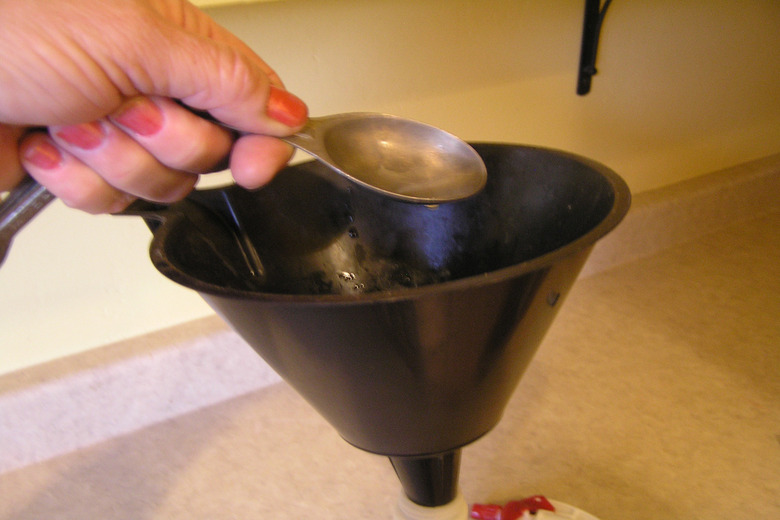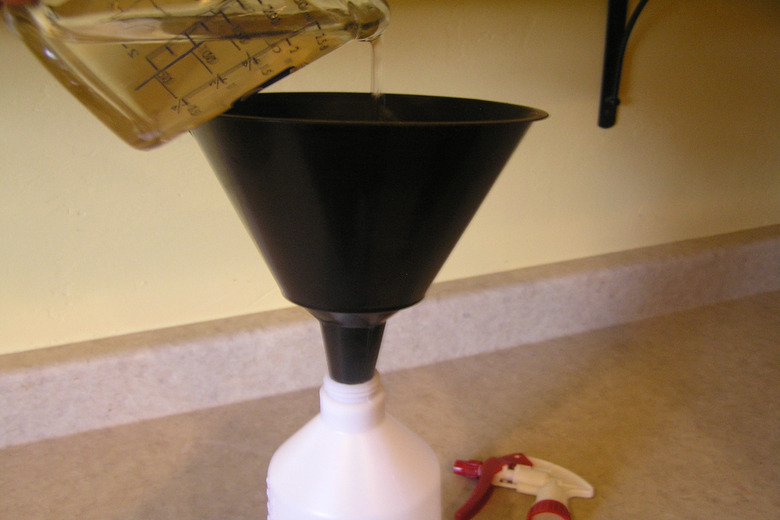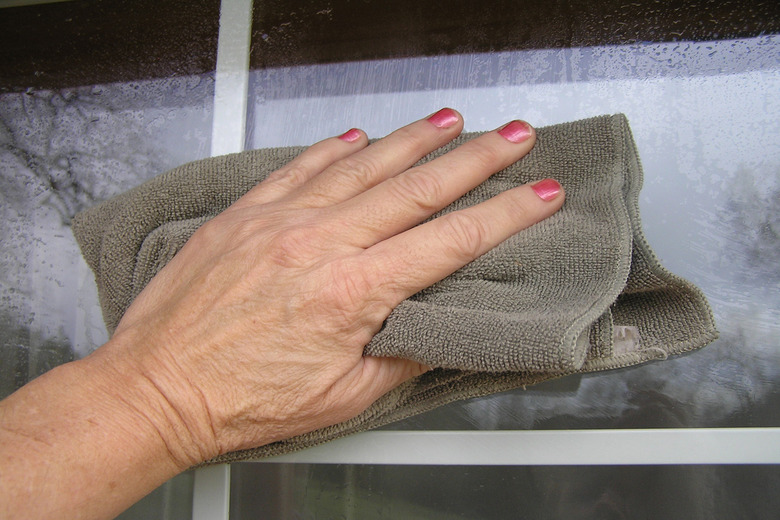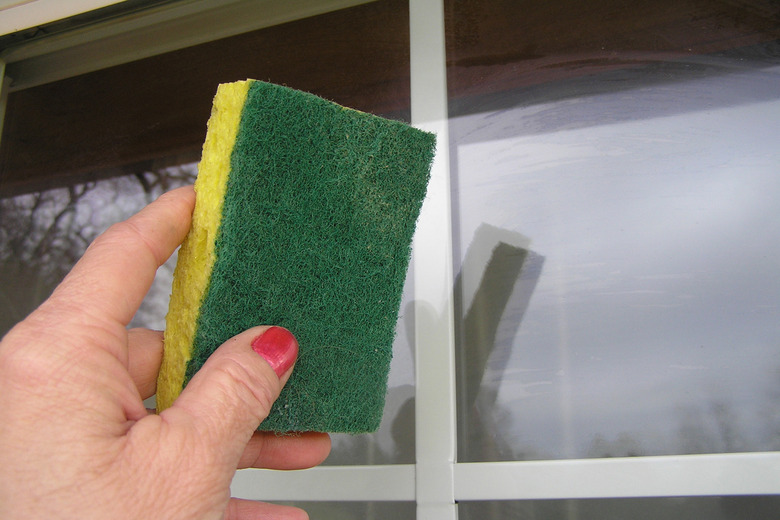How To Clean Windows With Vinegar
With its naturally acidic structure, vinegar offers a streak-free way to clean your windows when mixed with water. Antibacterial and nontoxic as a cleaning agent, vinegar doesn't harm kids or pets or leave chemical streaks on windows — and it costs a lot less than commercial alternatives.
Assemble the Ingredients
Assemble the Ingredients
Pick up a spray bottle at a hardware store or in the housewares section at the grocery store; sometimes you can find them for just a couple of dollars or less. A quart-sized or smaller spray bottle works. Increase the quantities to fit the container using the provided ratios. You'll also need a container of distilled white vinegar. Do not use apple cider vinegar as it doesn't have the same effect.
Mix the Ingredients
Mix the Ingredients
A plastic funnel allows you to add the ingredients to the bottle effortlessly. For a 16-ounce container, measure 2 cups of warm water and pour it into the bottle. Add 1 tablespoon of white distilled vinegar to the bottle via the funnel. For a 32-ounce bottle, add 8 cups of warm water and 2 tablespoons of vinegar. Do not add chlorine bleach to the vinegar as it can create a toxic chlorine gas. Label the bottle "Vinegar Cleaning Solution" so you don't mistakenly add other ingredients to it.
Clean the Windows
Clean the Windows
Spray the vinegar and water solution directly onto the window from about a foot away. Start at the top of the window and wipe down with crumbled newsprint, a lint-free cloth or microfiber towel. Continue wiping horizontally until the window is clean and streak free. To avoid streaks on the window, only clean them when they are not in direct sunlight. Direct sunlight causes the vinegar solution to dry too quickly, which can leave streaks.
Extra-Dirty Windows
Extra-Dirty Windows
For extra-dirty windows, clean the window with the scrub-side of a sponge dipped in the vinegar and water mixture before a final cleaning that shines the windows. Rinse with clean water to remove debris and dirt, then again spray the window with the mixture, wiping the window dry with a lint-free cloth. Remove the vinegar from the window frame with a cloth wrung out in clean water. Because of the acetic acid in vinegar, if it is left on the window frame, the vinegar may etch metal or plastic frames.




